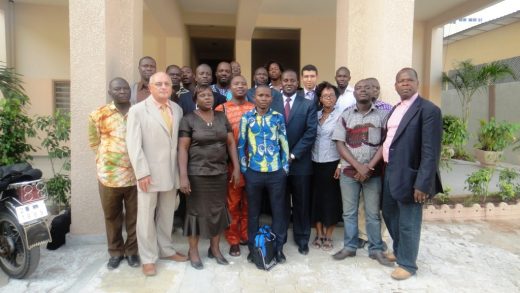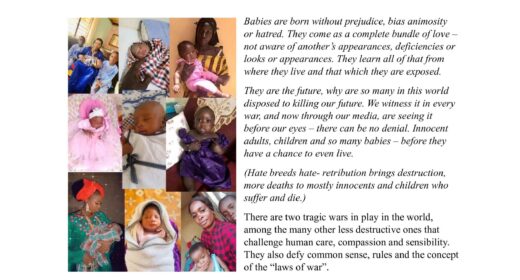
(This picture was taken in Benin in Africa after a workshop on Community \Planning and Evaluations facilitated by Gaston Gohou)
It is amazing in life how much the past overshadows the present and shapes the future. Humans apparently are hard wired to forget the hard lessons of their history. They also appear programmed to cling to their past, or what they perceive to be their past.
I have witnessed this in my work at home and in my travels. Most recently in Ukraine, where many were pining for the “good old days” of communism, even though it proved a disaster for people. There, business and wealth were hi-jacked by a few Oligarchs who now mostly live somewhere else. Wages, even for highly educated and specialists are miniscule and living costs continue to grow. Life is now a struggle for most.
I see it here in The Gambia, where a new form of colonialism is pervasive; this time with different controllers. Here many businesses, NGOs and social organizations are primarily owned or controlled by outsiders. Much of the wealth generated by business and the aid funds that flow into the country end up somewhere else. There is not much left for local people, and their own local NGOs and social organizations, especially in rural areas, who struggle to make a difference.
This has been Newfoundland and Labrador’s history, as well, and is still true today. Much has been written in recent years about the province’s economy and how economic growth has eclipsed all other provinces, including Alberta. This might make sense in an economic journal, but the reality for most who live here is much different.
Unemployment is still the highest in Canada, the population has been in a steady decline and, per capita, we perhaps have one of the greatest percentages of migrant workers in the world (when there is work elsewhere). Towns and communities are clinging tenaciously to their existence (some have closed). Even Corner Brook, once the second city and perhaps its most prosperous, now hardly rates when compared to other similar size towns and cities across Canada.
Much of this can be attributed to the history of all three areas, which has been one of occupation or colonial control. Someone else has always called the shots, especially when it comes to the economy. People appear willing to accept this, perhaps believing that it has always been thus and can’t be changed.
All three areas have adequate, if not abundant resources and much potential. Ukraine was the bread basket of the Soviet Union and the centre of its technology base.
The Gambia has an idyllic environment, much agricultural capabilities, and an abundance of other natural resources and attributes.
Newfoundland has a practically pristine environment and is still rich in minerals, oil and hydro potential (and until recent times the most abundant fisheries in the world).
Besides the historic context of all three places there is also the approach to economic development. A recent article suggested that Corner Brook’s approach to economic development was to lobby firms to locate there, but competition was stiff.
This approach, while again pervasive, takes us back to another era, when businesses were reliant on people and community was as important to them as their workers. Most now consider economic development to be someone else’s responsibility; mostly outsiders.
Armine Yalnizyan in a recent article about the Roil Report, the industrial inquiry commission on the strike at Voisey’s Bay mine, in referring to how mines are currently run, suggested that “now economic development does not necessarily mean community development.”
Newfoundland and Labrador has long used this approach to its determent. Give-aways have been a big part of economic development. The developers of the railroad, the paper mills, other industries and most of the mines that were developed received vast tracts of land, complete with forestry and mineral rights, many concessions and most were provided huge dollops of cash.
The oil and fish were forfeited to the Canadian Government with confederation. The struggle to get even the scraps of the massive benefits accrued from the offshore destroyed many political careers and set back development for many years. It is still a struggle.
The fishery was destroyed by indifference and neglect by governments who considered the province a blight on Canada’s image and we won’t easily forget Churchill Falls, at least that is, for the next two generations.
The dilemma appears to be primarily people’s unwillingness to let go of what has become redundant to the world in which we live. There appears a collective belief that “this is the way it is and it will always be this way”, or as they say in Ukraine“life is life”.
What will it take for people to recognize that history needn’t repeat itself? When will they appreciate that the only true development, economic or otherwise comes from within?
Will they have to reach the levels of exasperation and despair that are witnessed in many countries where life is so tenuous and without hope that there is nothing left to lose? Do we have to let our political and corporate masters have the same control, whereby even life, much less human and social support, is not sacred anymore; only total power matters?
History and the communities that it created, unlike current consumer products, are not disposable, when no longer of immediate use. Both have tremendous residual value in the lessons learnt by our fore-parents and the many battles and wars that were fought to preserve what was considered important.
We need remember that what is won’t always be. To develop as a people and to create meaningful economies for the future requires in-depth reflection of our history. This is not for history’s sake, but to discover the values, strengths, and more so, the wisdom that helped people build new futures; as their old ones became redundant.
Written by Bill Pardy
May 26, 2011


